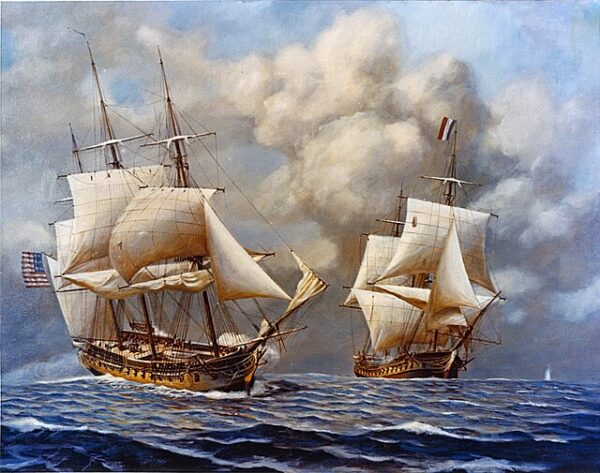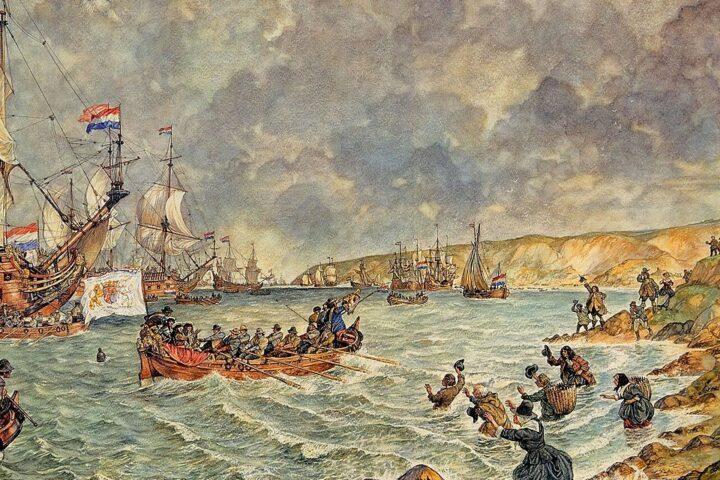The late 1790s marked a turning point in American foreign policy, and nothing tested the fledgling country more than the XYZ Affair. Rooted in a failed negotiation with France, the incident triggered a series of events that dramatically altered the course of the French and American relationship, exposing the fragility of international alliances and propelling the United States into the “Quasi-War,” an undeclared naval conflict with France.
The XYZ Affair began in 1797 during John Adams’ presidency when American envoys, including Charles Cotesworth Pinckney, John Marshall, and Elbridge Gerry, were sent to France to negotiate and resolve escalating tensions. Instead of diplomatic courtesy, the American delegation was met by three French agents, later designated as X, Y, and Z in official documents. These agents brazenly demanded substantial bribes and loans before any formal negotiations could take place, a demand that outraged the American envoys and, upon its disclosure, incensed the American public.
The revelation of the XYZ Affair in 1798 ignited a storm of anti-French sentiment across the United States. The public outrage was palpable, and President Adams capitalized on this wave of indignation to advocate for bolstered national defense. In response, Congress authorized measures to strengthen the military, leading to the establishment of the United States Navy, a move that would prove crucial in the ensuing conflict.
On July 7, 1798, the U.S. Congress made a decisive and dramatic response by rescinding the Treaty of Alliance with France. This action not only nullified the military alliance but also marked a clear departure from previous diplomatic relations, symbolizing the profound deterioration in Franco-American relations. This legislative act directly precipitated the Quasi-War, an undeclared naval conflict that lasted from 1798 to 1800.
The Quasi-War was characterized by naval skirmishes and privateering, particularly in the Caribbean and along the Atlantic seaboard. Both the United States and France authorized their naval forces and privateers to seize each other’s merchant ships, leading to numerous engagements. The fledgling United States Navy demonstrated its capabilities by defending American commerce and capturing several French vessels. A notable victory was the capture of the French frigate L’Insurgente by the USS Constellation, which highlighted the growing prowess of the American navy.
Domestically, the Quasi-War had significant political repercussions. It bolstered the Federalist Party’s agenda for a stronger central government and increased military expenditure. However, it also led to the controversial Alien and Sedition Acts, aimed at suppressing dissent and curbing the influence of foreign nationals perceived as threats. These acts sparked fierce opposition, particularly from the Democratic-Republican Party led by Thomas Jefferson and James Madison, who viewed them as draconian measures infringing on civil liberties.
The conflict concluded with the signing of the Convention of 1800, also known as the Treaty of Mortefontaine. This agreement, negotiated by American diplomats including William Vans Murray and Oliver Ellsworth, ended the hostilities and restored peace between the United States and France. The treaty also annulled the 1778 alliances, formalizing the separation initiated by Congress in 1798 and paving the way for a new era in American diplomacy.






